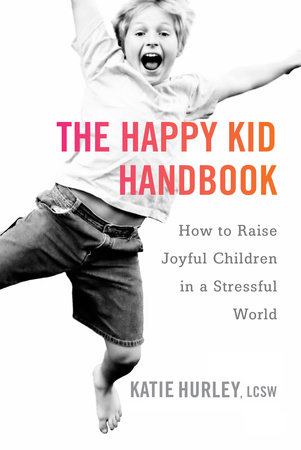How to Promote Healthy Social and Emotional Skills During the Pandemic
by Katie Hurley, LCSW
“I don’t take the group Zoom calls with my friends because I don’t know what to say and I’m too tired at the end of the day.” These words, uttered by a fifth grade student Zooming me from her bedroom, sum up what a lot of kids are feeling right now. Even the kids in learning pods or hybrid school models that meet twice a week struggle with isolation, loneliness, and feeling disconnected from their previous lives.
One thing that remains constant, no matter the current school scenario, is that when kids struggle with stress and feeling overwhelmed, they tend to project those feelings outward in the form of long and loud meltdowns.
It’s important to remember that kids no longer have access to their usual coping skills. Sports and extracurriculars are on indefinite hold in some cases, play dates are not as frequent and require precautions, and many outdoor play spaces are still restricted.
The good news is there are steps caregivers can take at home to help kids through this difficult time. Try out these ideas to promote social and emotional health in your home:
Get the Hidden Emotions Out: Kids don’t usually say things like, “I feel anxious,” or, “I’m frustrated.” Instead, they have a long list of physical complaints, including stomachaches, headaches, muscle pains, fatigue, and generally don’t feel well. While young children are certainly prone to picking up viruses, frequent physical complaints with no other symptoms should be considered red flags for stress or anxiety.
When families take the time to have “emotions checkpoints” throughout the day, kids get into the habit of getting their feelings out. Feelings thermometers to measure how worried or frustrated family members feel throughout the day can be a great tool for talking about feelings. Other strategies include using mood meters that assign colors to moods and help kids evaluate their moods throughout the day. You can also use feelings faces charts to point to how they feel.
Rely on Empathy and Encouragement: Kids are coping with a lot of transitions right now, and that can feel frustrating. While repetitive negative behaviors can upset even the calmest parent out there, it’s important to meet your child’s upset with support and empathy. The time for behavioral correction is not when your child is falling apart.
A few empathic phrases can go a long way toward helping your child regain a sense of calm. Try these:
You look really frustrated. I get frustrated sometimes, too. I know how that feels.
It seems like you feel worried. Feeling worried can be scary! Will a hug and a story help?
It’s hard not seeing your friends. I understand. You really wish you could see them.
Follow that up with encouraging phrases that show your child that you know how hard they are trying:
You are doing your best at online learning and I love when you teach me what you learned!
You are so kind to care about your friends. They are lucky to have you.
I love watching you try new things while we’re home. You are brave!
Get Creative With Connections: It’s difficult to promote social development when kids have limited opportunities to spend time together, so we have to get creative. Now is a great time to bring back pen pals, but if friends live close by, it can be fun to drop each other riddles, scavenger hunt lists, or homemade funny fill-ins. Your child’s friend can complete the challenges and drop the results at your house!
Group video chats with a purpose can also be a lot of fun for elementary school kids. You can plan ahead with the other parents to do “Chopped Junior” from your own kitchens over FaceTime or Zoom or host a digital book club or crafting group.
Try a Worry Box: It’s natural for kids to feel worried with so much uncertainty in their lives. A Worry Box is a great way to get the worries out at the end of the day. Have your child decorate a small box however they want and make sure it has a top. During your normal bedtime routine, ask your child to name the three top worries of the day and write or draw them on individual slips of paper. Next, say each worry out loud and put it in the box. Explain to your child that you will take the worries to your room for the night so your child can rest easy without those worries on their mind. Follow that up with a calming strategy such as coloring, reading, or belly breathing.
Parenting through a pandemic is overwhelming on a good day, and parents have just as many worries as kids. Be sure to practice your own stress reduction strategies as well. Self-care plays an important role in having the energy and mindset to care for your kids during difficult times.
-
Books by the Author:
-
No More Mean Girls
Also available from:The Happy Kid Handbook
Also available from:


